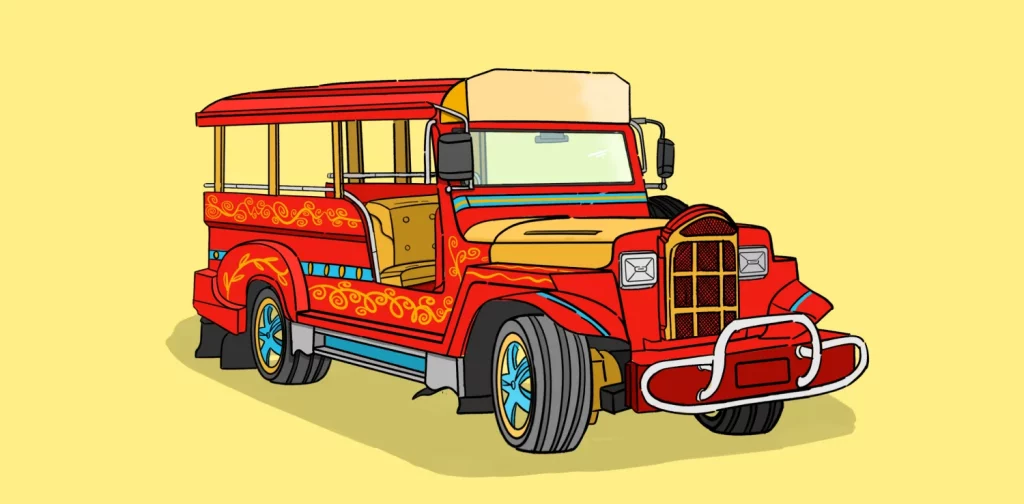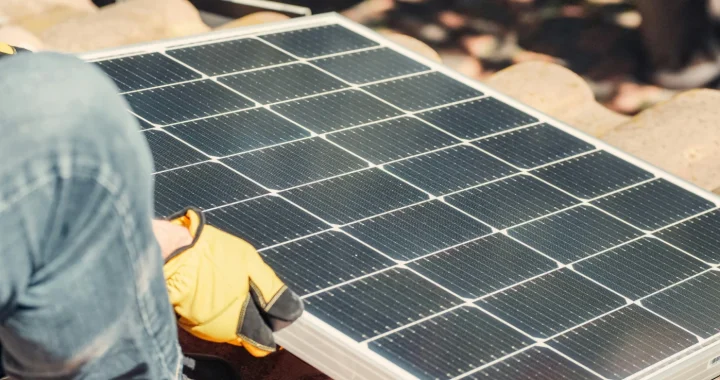The Jeepney Phaseout Is Hurting the Real Drivers of Change

Illustration by Irhan Prabasukma.
If you think you experienced the worst rush hour, then you haven’t been to Manila. Ranked first for the world’s most congested city, Manila’s roads are clogged with vehicles clamoring for speed and supremacy. One of the reasons behind the traffic? Jeepneys. An integral part of Filipino culture, jeepneys and their drivers are now under the threat of the Jeepney Phaseout.
Jeepney History
Jeepneys rage across the thoroughfares, carrying their passengers across 685 routes. For decades, these kitschy vehicles have polluted the roads, belching out 94% of soot particles in Manila.
The jeepney started out as a sustainable, upcycled invention. After World War II, the Americans abandoned their jeeps in the Philippines. Instead of allowing them to rust, Filipinos turned the jeeps into affordable public transportation. From vehicles of war and American colonialism, the jeep reincarnated into the jeepney, a symbol of Filipino culture, innovation, and resistance.
Then, the Jeepney Phaseout.
The Jeepney Phaseout Hurts the Poor
The Filipino government seems to have forgotten the jeepney’s powerful history. In 2017, the Land Transportation Franchising and Regulatory Board (LTFRB) launched the Public Utility Vehicle Modernization Program (PUVMP), dubbed the Jeepney Phaseout, to implement eco-friendly vehicles.
While created with good intentions, the implementation is deplorable. The program mandates that jeepney drivers purchase e-Jeepneys that cost over 2 million pesos or 43,000 US dollars. The LTFRB is only subsidizing 10% of the loan, which means that jeepney drivers, who rely on a paycheck of 2,000 pesos, would need to earn double to repay the loan and support the 118,000 families that rely on their income. This shows how the PUVMP is a scheme that intends to modernize technology through unmodern means: placing the brunt of modernization on the poor.
To give the government credit, the LTFRB is requiring jeepney drivers to form cooperatives to lessen individual costs, gain government benefits, and standardize working conditions. However, jeepney drivers must purchase more than one e-Jeepney to form a cooperative when the cost of one already destabilizes their income. Rather than aiding jeepney drivers, the cooperative seems to be a way for big businesses to control the industry and their employees. Jeepney drivers fear that if they join a cooperative, they will lose their wages and the livelihood that comes with operating their jeepneys.
Jeepney Drivers Resist
Channeling the culture, innovation, and resistance that birthed the jeepney, the jeepney drivers in Manila and beyond have demanded better financial assistance within the PUVMP. Labor federations like PISTON, MANIBELA, and Tanggol Pasada Network have organized strikes across the Philippines and pressured the LTFRB to delay the phaseout deadline until April 30.
The LTFRB delayed the deadline but still refused to reform the mandate. Thus, the tens of thousands of jeepney drivers represented by these labor federations continue to resist. Because if they don’t advocate for themselves, who will?
But make no mistake. The jeepney drivers and I are not against eco-friendly vehicles and the transformation toward a more sustainable transportation system. We are against the loss of cultural identity and economic autonomy from a poorly-funded mandate.
The Filipino government is pushing for modernization under the guise of “a greener future” while shoving the real drivers of improvement—the jeepney drivers—aside. We cannot tackle the congestion and pollution issues in Manila without ensuring that low-income workers are included in our shared vision of a more sustainable Philippines. The Jeepney Phaseout is a microcosm of what happens globally: the exclusion of marginalized voices from policies that impact their lives. Ending this will require our collective actions, near and afar.
Call for Inclusive Modernization
In December 2023, PISTON filed a petition calling on the Supreme Court to issue a temporary restraining order to stop the unconstitutional Jeepney Phaseout. The Supreme Court did not make a decision, forcing PISTON to launch a three-day strike to stop the deadline.
After a 15-day grace period, the LTFRB plans to punish these jeepney drivers by impounding their vehicles, suspending their licenses, and banning them from the e-jeepney routes. The department released a statement that the Philippines has a jeepney surplus, so they are confident that these protesters will have little impact on modernization. The LTFRB is confirming that the Jeepney Phaseout’s ulterior motive is the elimination of the workers it finds expendable: the jeepney drivers.
As a Filipino-American, I was unaware of the notorious Jeepney Phaseout until I discovered Sakay Na!, a market in California where Filipino-American vendors fundraised for the jeepney drivers represented by Tanggol Pasada Network. From an issue that was physically an entire ocean away, the Jeepney Phaseout now existed in my immigrated homeland: America. The preservation of my Filipino identity goes hand-in-hand with my advocacy for the jeepney drivers, and that both our voices matter in the shaping of a better Philippines.
The shift to sustainable transportation can still happen so long as this shift champions the livelihood of the jeepney drivers. The simplest way for the Filipino government to promote this modernization is to provide a greater cash subsidy to the jeepney drivers. By investing in the people rather than the vehicles, a reformed PUVMP can better address socio-economic concerns, leading to a modernization that is not only environmentally friendly but also equitable.
So, even with the lapsed deadline and the LTFRB’s ruthless response, we still have the collective power to support the jeepney drivers. Sign PISTON’s petition, join a strike in your city, or follow Pinoy-owned Pinay Collection’s toolkit on how we can fight for the jeepney drivers from afar. As the past Filipinos created the jeepney from the scraps of metal and imperialism, so can we, Filipinos from Manila and beyond, upcycle a program to usher in a modernization that truly champions the work, lives, and income of jeepney drivers.
Editor: Nazalea Kusuma & Kresentia Madina

Co-create positive impact for people and the planet.
Amidst today’s increasingly complex global challenges, equipping yourself, team, and communities with interdisciplinary and cross-sectoral insights on sustainability-related issues and sustainable development is no longer optional — it is a strategic necessity to stay ahead and stay relevant.

Tara Lago
Tara is a student at Columbia University, majoring in Neuroscience and Behavior. She is the current historian of Liga Filipina, Columbia’s Filipino-based group, where she advocates for Pinoy culture, community, and activism. Outside of Liga Filipina, Tara reports for Bwog and conducts research at the Columbia University Medical Center.


 The Hidden Threat of Tire Pollution to Salmon Populations
The Hidden Threat of Tire Pollution to Salmon Populations  Understanding the Climate-Care Nexus
Understanding the Climate-Care Nexus  Role of Banks in Supporting Decent Work for All
Role of Banks in Supporting Decent Work for All  Natural Regeneration for a More Cost-Effective Forest Restoration
Natural Regeneration for a More Cost-Effective Forest Restoration  UK’s Local Power Plan to Support Community Energy Development
UK’s Local Power Plan to Support Community Energy Development  Global Shifts in Forest Dynamics and Their Impact on Biodiversity and Resilience
Global Shifts in Forest Dynamics and Their Impact on Biodiversity and Resilience